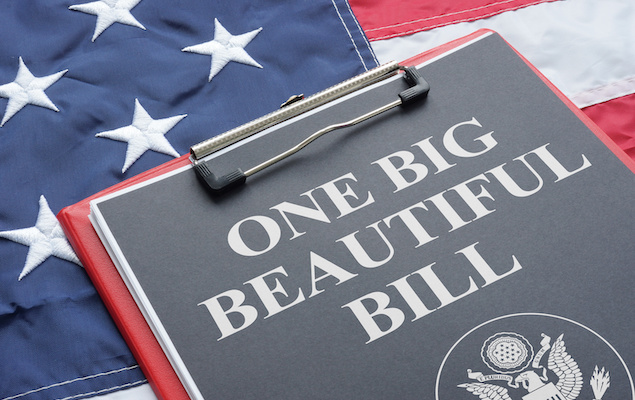How does the One Big Beautiful Bill affect dentists?
ADA shares impacts of tax policy, student loan, Medicaid provisions

The ADA compiled a three-page document outlining President Donald Trump’s budget reconciliation bill’s impact on dentists and dental practices through provisions relating to tax policy, student loans and state Medicaid programs.
The One Big Beautiful Bill Act, H.R. 1, passed the Senate July 1 by a 51-50 vote, passed as amended in the House of Representatives by a vote of 215-214 on July 3 and was signed by President Trump July 4. The legislation contains several measures “with a direct impact” on dentists and dental practices around the country, the ADA said, such as multiple extended, reauthorized or new deductions, and new or improved research, education and investment incentives.
Tax provisions that will impact dental practices, dental students and the dental workforce include the pass-through entity tax deduction, which was fully restored due to ADA advocacy, according to the Association. This measure guarantees tax parity for small business dental practices and protects dentists from a 1.5%-5% tax hike.
Other impactful tax provisions include a $40,000 individual state and local tax deduction cap, 20% small business income deduction, 100% bonus depreciation, new domestic research deductions, 21% corporate tax rate, postsecondary credentialing expenses, employer provided student loan repayment and depreciable business asset expensing.
The bill also made changes to the federal student aid model with “wide-ranging” impacts on dental students, dental schools and the dental workforce, the Association said.
“Current and future dental students utilizing the federal student loan system should familiarize themselves with these changes to limit uncertainty during this transition,” said the ADA.
Some major changes include new loan repayment options, limits on federal aid amounts, elimination and reduction of previous student aid programs, new accountability mechanisms and new timelines for aid programs.
The Graduate PLUS Loan program was eliminated under the new legislation, and there are changes and reductions to professional school loan limits, loan repayment plan options and parent PLUS loan limits. The ADA encourages current and future students to visit the American Dental Education Association’s advocacy center and the American Student Dental Association to navigate the specific circumstances of their loans.
Additionally, the ADA outlined the bill’s changes to Medicaid that will affect both patients and dental providers, noting that most Medicaid provisions take affect late 2026-28. Pediatric dental benefits remain federally mandated under the early and periodic screening, diagnosis and treatment, or EPSDT, benefit, but adult dental benefits – which are optional for states – may be impacted as states adjust to changes in federal Medicaid funding.
According to the ADA, key provisions affecting dental practices include a cap on state-directed payments, effective with new managed care organizations rating periods on or after July 4, and provider tax limits, phasing down starting October 2026. Key provisions affecting patients include eligibility redeterminations and work/community engagement requirements, both beginning January 2027, and new co-pays, beginning October 2028.
“Most major provisions of [the bill] are not yet in effect, providing time for adjustments or potential federal and state legislative revisions,” the Association emphasized. “The ADA is closely monitoring implementation and working with state dental societies to provide updates and advocacy support.”



